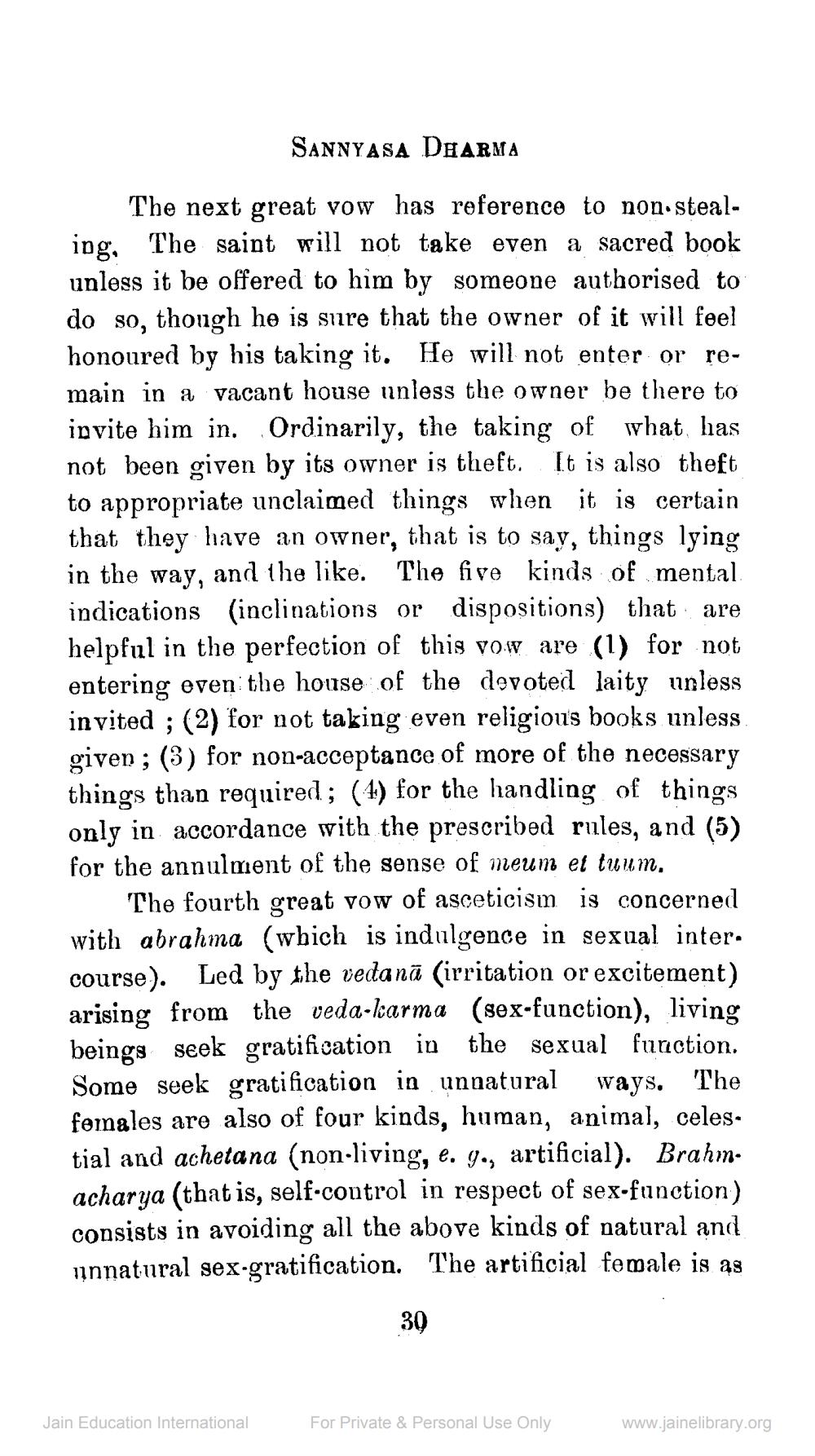________________
SANNYASA DHARMA
The next great vow has reference to non-stealing. The saint will not take even a sacred book unless it be offered to him by someone authorised to do so, though he is sure that the owner of it will feel honoured by his taking it. He will not enter or remain in a vacant house unless the owner be there to invite him in. Ordinarily, the taking of what has not been given by its owner is theft. It is also theft to appropriate unclaimed things when it is certain that they have an owner, that is to say, things lying in the way, and the like. The five kinds of mental. indications (inclinations or dispositions) that are helpful in the perfection of this vow are (1) for not entering even the house of the devoted laity unless invited; (2) for not taking even religious books unless. given; (3) for non-acceptance of more of the necessary things than required; (4) for the handling of things only in accordance with the prescribed rules, and (5) for the annulment of the sense of meum et tuum.
The fourth great vow of asceticism is concerned with abrahma (which is indulgence in sexual intercourse). Led by the vedana (irritation or excitement) arising from the veda-karma (sex-function), living beings seek gratification in the sexual function. Some seek gratification in unnatural ways. The females are also of four kinds, human, animal, celestial and achetana (non-living, e. g., artificial). Brahm acharya (that is, self-control in respect of sex-function) consists in avoiding all the above kinds of natural and unnatural sex-gratification. The artificial female is as
Jain Education International
30
For Private & Personal Use Only
www.jainelibrary.org




